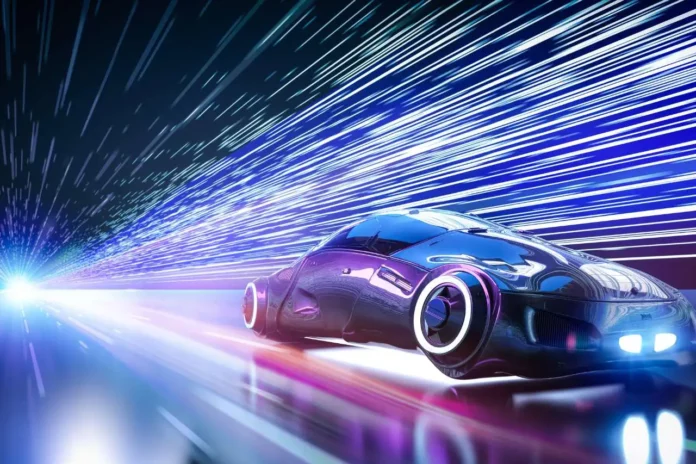Imagine a car that drives you anywhere without needing maps. This is the future of AI navigation.
AI navigation technology is evolving rapidly. Soon, cars will use advanced algorithms and real-time data to navigate. They will learn routes, avoid traffic, and ensure timely arrivals. AI will make driving safer and more efficient. No more fumbling with maps or GPS devices.
Just sit back and let your car handle the journey. This innovation promises a seamless travel experience. The future of transportation will be revolutionized by AI, enhancing convenience and reliability. Keep an eye out for these smart cars on the roads soon.
Revolution In Navigation
Traditional maps are very common. AI is changing how we navigate. No more paper maps or even digital ones. AI can learn routes and avoid traffic. It remembers past trips and finds new paths. This is much smarter than old systems. Cars will guide you without needing a map.
AI makes navigation easy. It understands streets and landmarks. AI can talk to other cars. They share information. This helps avoid accidents. AI also learns your preferences. It can choose the best route for you. This is the future of travel.
How Ai Navigation Works
AI cars use sensors to understand their surroundings. Cameras, radar, and lidar collect data. These sensors detect objects, people, and other cars. The AI then processes this information.
AI systems analyze the data instantly. They make quick decisions to keep the car safe. The AI can adjust speed and direction. This helps the car avoid obstacles and reach its destination.
Benefits Of Ai-driven Cars
AI-driven cars can make roads safer. These cars can detect hazards quickly. They can react faster than humans. This reduces the risk of accidents. Sensors and cameras help in avoiding collisions. The car can alert the driver in dangerous situations. Night driving becomes safer with AI assistance. Drunk driving accidents can be reduced. AI can take control if the driver is sleepy or distracted.
AI navigation can find the best routes. This helps in saving time. Less time on the road means less fuel used. This is good for the environment. Traffic jams can be avoided. AI can reroute the car if there is heavy traffic. The car can also find parking spots easily. This saves time and reduces stress for drivers.
Challenges In Ai Navigation
AI navigation faces many technical limitations. Sensors can fail in bad weather. This makes it hard for the car to see. Computers need a lot of power to process data quickly. Smaller devices may not handle this. Sometimes, the AI makes errors in understanding the environment. These mistakes can be dangerous. High-quality maps and data are essential. Yet, they may not always be available. This can lead to wrong routes. AI must learn to adapt to new roads and changes. This takes time and lots of data.
Ethical considerations in AI navigation are very important. AI must make safe decisions for passengers. What if a crash is unavoidable? The car must choose who to save. Privacy is another concern. Cars collect lots of data about locations and habits. This data needs protection from hackers. Trust in AI is crucial. People must believe the car will drive safely. Ensuring fairness is also key. AI should not favor one person over another. These issues need clear rules and guidelines.
Current Ai Navigation Technologies
Imagine a world where your car navigates without maps, relying solely on AI. Advanced AI systems could revolutionize driving, offering seamless and intuitive navigation.
Lidar And Radar
Lidar uses light to map the surroundings. It measures distance with laser beams. Radar uses radio waves to detect objects. Both help cars understand their environment. Self-driving cars use these technologies. They can see the road, other cars, and obstacles. This makes driving safer and more accurate.
Machine Learning Algorithms
Machine learning algorithms learn from data. They improve over time. These algorithms help cars make decisions. They can recognize traffic signs. They can also detect pedestrians. This makes the car smarter and more reliable. Artificial intelligence helps the car navigate without maps. It learns new routes on its own.
Future Prospects Of Ai Navigation
AI navigation can make cars drive themselves. It can understand the city streets. It learns from real-time data. This data includes traffic, road conditions, and pedestrian movements. Smart sensors and cameras help the system. They provide a full view of the surroundings. People can sit back and relax. The car will take them to their destination safely.
Interconnected transport systems are the future. Buses, trains, and cars will communicate with each other. This will make travel smoother and faster. Traffic jams will become less common. The systems will share information quickly. They will adjust routes to avoid delays. Passengers will enjoy a more efficient journey. Safety will also improve with this technology.
Impact On Society
Many jobs might change due to AI in cars. Truck drivers and taxi drivers might lose their jobs. New jobs will be created though. People will need to fix and build these smart cars. Tech jobs will grow. Many will need to learn new skills. These changes could be hard for some people.
AI cars can help people with disabilities. They will not need help to get around. Blind people could travel alone. Elderly people can stay independent. AI cars could make life easier for many people. Public transport might also improve. More people will have access to safe travel.
Preparing For An Ai-driven Future
Imagine a world where your car effortlessly navigates without maps, thanks to AI technology. This revolution in AI-driven navigation promises unprecedented convenience and safety for drivers.
Policy And Regulation
New policies and regulations will be essential. These rules will ensure safety on the roads. Governments will need to work together. They will set standards for AI-driven cars. Clear guidelines will help developers. This will make sure AI systems are reliable. Public trust is crucial. Without it, AI cars cannot succeed.
Public Acceptance
People need to trust AI navigation. Trust will grow if they see real benefits. AI cars can reduce accidents. They will also save time. Education campaigns will help. They will explain how AI cars work. Public trials will show their safety. Positive experiences will increase acceptance. Soon, AI cars may become a normal sight on roads.
Imagine a world where your car drives you anywhere without maps. AI navigation is that future. This innovation promises safer, more efficient travel. Embrace the change and experience a revolution in transportation. Stay ahead and watch as AI transforms the way we navigate our roads.


